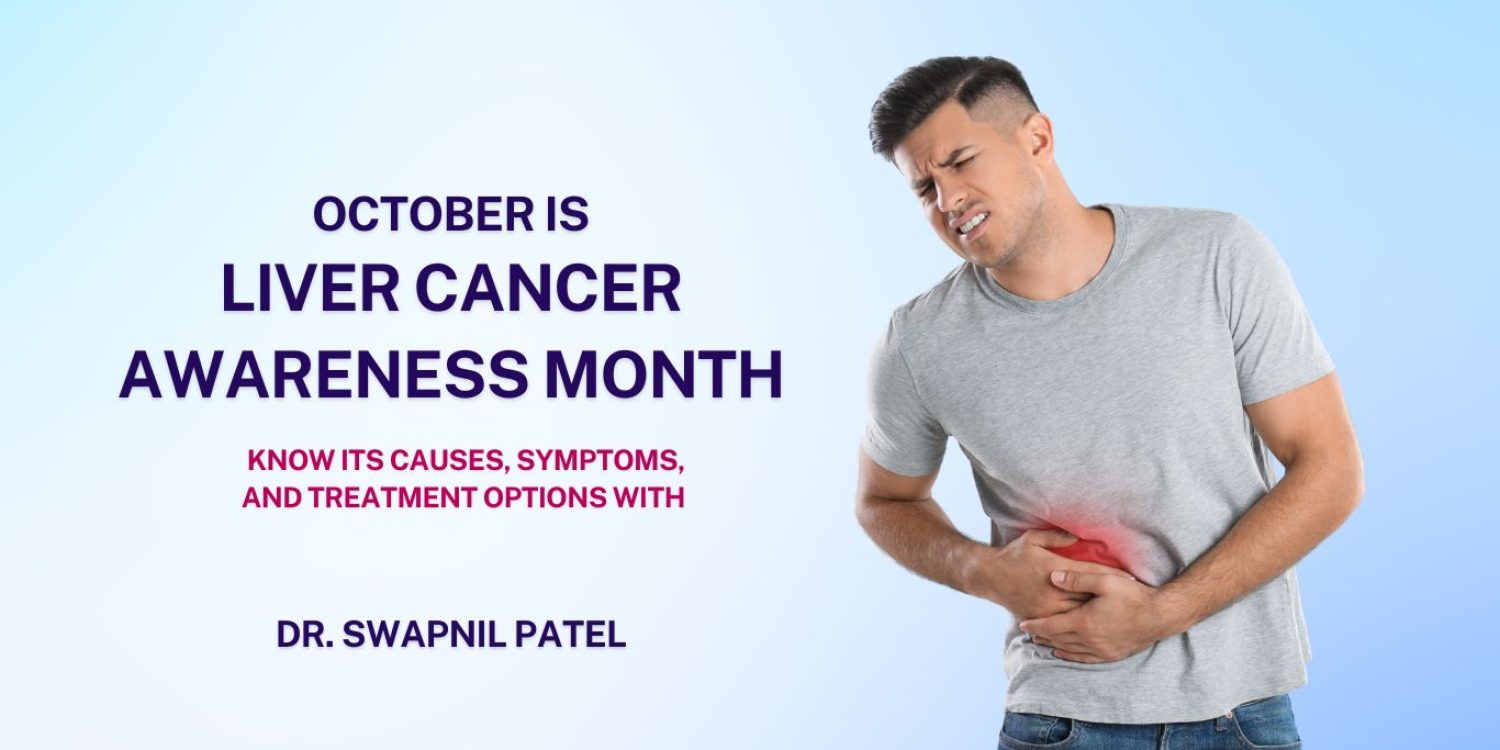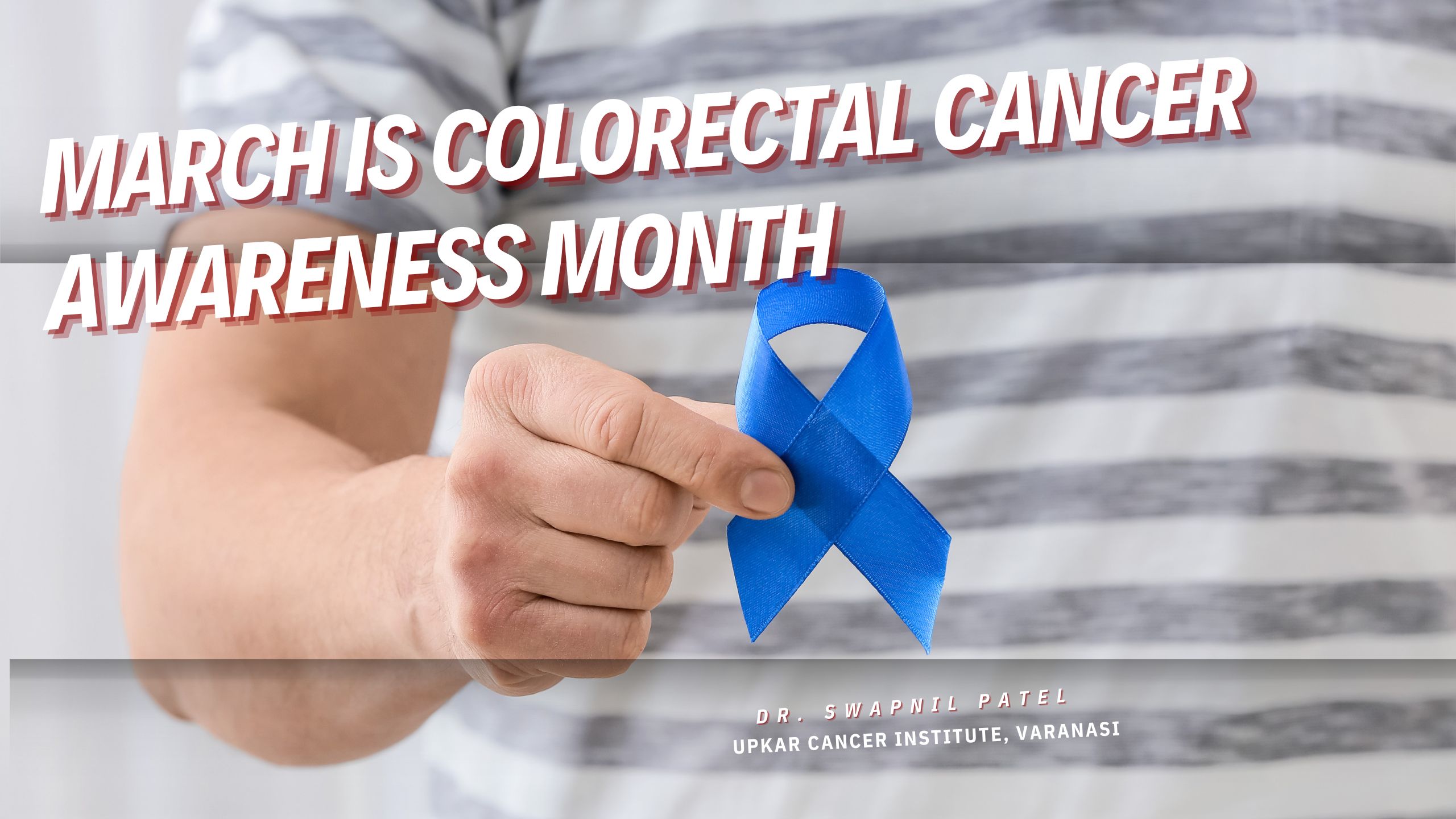Early Detection and Prevention with Dr. Swapnil Patel
Liver cancer is a serious, life-threatening disease that impacts thousands of lives every year not only in India but across the globe. October, designated as Liver Cancer Awareness Month, serves as a crucial reminder to increase awareness about this condition, encourage early detection, and support ongoing research efforts. As a renowned surgical oncologist in Varanasi, Dr. Swapnil Patel (Ex-Associate Professor at Mahamana Madan Mohan Malviya Cancer Hospital, Now serving at Upkar Cancer Hospital, Varanasi) is dedicated to raising awareness and providing cutting-edge treatment options for liver cancer patients.
Understanding Liver Cancer
Liver cancer begins in the cells of the liver, an essential organ responsible for filtering toxins, producing bile, and regulating metabolism. The most common form is hepatocellular carcinoma (HCC), accounting for 75-85% of all liver cancer cases. Other types include cholangiocarcinoma, which affects the bile ducts, and angiosarcoma, a rare cancer of the liver’s blood vessels.
The complexity and vital role of the liver in the body mean that damage from cancer can lead to severe health issues. Unfortunately, early-stage liver cancer often shows no noticeable symptoms, making early detection challenging yet critical for better outcomes. This month, we aim to shed light on liver cancer’s symptoms, risk factors, and treatment options to help people recognize the disease early and seek timely medical care.
Symptoms of Liver Cancer: What to Watch For
Liver cancer symptoms can be subtle and easily mistaken for other conditions. It’s essential to monitor any unusual changes in the body. Some of the key symptoms include:
- Unexplained weight loss: Sudden weight loss without changes in diet or exercise.
- Loss of appetite: A lack of interest in food or feeling full quickly.
- Upper abdomen pain: Persistent pain or discomfort on the right side of the abdomen.
- Swelling of the abdomen: Fluid buildup (ascites) in the abdomen causing bloating.
- Jaundice: Yellowing of the skin and eyes due to the liver’s inability to process bilirubin.
- Nausea and vomiting: Unexplained nausea or frequent vomiting.
- Fatigue and weakness: Ongoing feelings of tiredness or weakness with no apparent cause.
While these symptoms can be linked to other conditions, it is important to consult a physician immediately if they persist. Early diagnosis improves the chance of successful treatment.
Risk Factors for Liver Cancer
Several factors can increase an individual’s risk of developing liver cancer. Awareness of these risk factors is essential in taking proactive steps to protect liver health:
- Chronic hepatitis B and C infections: Long-term infections with HBV or HCV significantly increase the risk of liver cancer.
- Cirrhosis: Scarring of the liver due to chronic damage (often from heavy alcohol use or hepatitis) raises the likelihood of cancer.
- Non-alcoholic fatty liver disease (NAFLD): Linked to obesity, NAFLD is becoming a more common cause of liver cancer.
- Aflatoxin exposure: Toxins from molds on improperly stored grains and nuts can damage the liver.
- Alcohol abuse: Excessive alcohol consumption leads to liver damage and increases cancer risk.
- Family history: A genetic predisposition to liver cancer or other liver diseases.
- Diabetes and obesity: These conditions, especially when combined, elevate liver cancer risk.
By reducing alcohol intake, maintaining a healthy weight, and seeking treatment for hepatitis infections, individuals can lower their risk of liver cancer.
Diagnosing Liver Cancer
Accurate and timely diagnosis is critical in liver cancer treatment. A combination of blood tests, imaging scans, and biopsies is often used to confirm the presence of cancer. Elevated levels of alpha-fetoprotein (AFP) in the blood can indicate liver cancer, and ultrasound, CT scans, and MRIs help visualize tumors in the liver. A biopsy may be performed to confirm the diagnosis if imaging tests suggest cancer.
Treatment Options for Liver Cancer
Treatment for liver cancer depends on the stage of the disease and the patient’s overall health. Common treatment options include:
- Surgery: Surgical removal of the tumor is an option for early-stage cancer. In some cases, a liver transplant may be needed if the liver is severely damaged.
- Ablation and Embolization: Minimally invasive procedures that destroy cancerous tissue or block blood flow to the tumor, respectively.
- Radiation therapy: High-energy beams are used to kill or shrink cancer cells.
- Targeted therapy and immunotherapy: These therapies use drugs to specifically attack cancer cells or enhance the body’s immune response.
- Chemotherapy: In advanced stages, chemotherapy may be used to slow cancer growth, though liver cancer is often resistant to traditional chemotherapy drugs.
Preventing Liver Cancer: Simple Steps for Better Health
The best way to combat liver cancer is through prevention and early detection. Key preventive measures include:
- Vaccination against Hepatitis B: The hepatitis B vaccine is safe and effective in preventing HBV infections, a leading cause of liver cancer.
- Managing hepatitis infections: Regular medical care and antiviral therapies can reduce liver damage caused by chronic HBV and HCV infections.
- Limiting alcohol consumption: Reducing or avoiding alcohol lowers the risk of liver damage and cirrhosis.
- Maintaining a healthy weight: A balanced diet and regular physical activity help prevent NAFLD and other liver-related issues.
- Regular screening: Individuals with risk factors for liver cancer should undergo regular screenings, including blood tests and ultrasounds, to catch the disease early.
Raising Awareness and Encouraging Early Action
During Liver Cancer Awareness Month, we can all play a role in educating ourselves and others about the risks, symptoms, and prevention of liver cancer. Dr. Swapnil Patel emphasizes the importance of early detection, regular screenings, and lifestyle changes in reducing the risk of this dangerous disease. By spreading awareness, we can save lives and support ongoing efforts to combat liver cancer through research and advanced treatments.
This October, let’s commit to learning more about liver cancer, making healthy choices, and encouraging loved ones to do the same.
If you or someone you know is at risk for liver cancer or experiencing symptoms, consult Dr. Swapnil Patel, a leading surgical oncologist in Varanasi, for expert advice and personalized treatment options.


